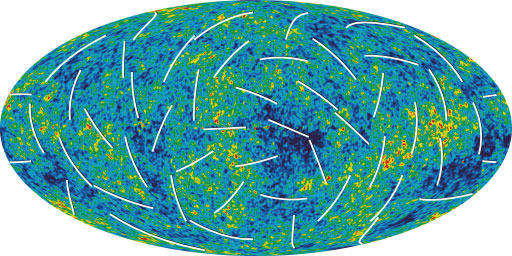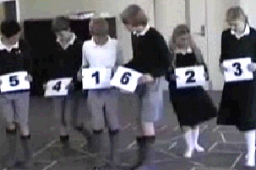March 12, 2006
New Mac Mini
I'm gradually converting my family to Mac. This week I replaced our kids' Cappucino PC with a brand-new Intel Mac Mini. If you're a switcher like me, you should know that although the Mini comes with a DVI/VGA adapter dongle, it doesn't have a USB/PS2 adapter. So you'll need to pick up a USB to PS/2 thing like this one.
Of course the other thing we needed to do was stick some "essential" software on it, including Anthony's current favorite game and Piper's current favorite. And Firefox for Dad. And Google Earth for kicks.
The Mac Mini is a wonder of engineering. A couple observations.
- It is much quieter than the Cappucino PC that it replaces. The Cappucino PC had an intolerably loud fan, and the DVD drive was incredibly noisy. The Mini is basically inaudible on both counts. Although the Mini's onboard speaker is just as tinny as the one on the Cappucino, you can actually hear the one on the Mini.
- OS X on Intel just works. I am most impressed by Rosetta, which is completely transparent to me as a user. None of the third-party software I installed was written for Intel Macs, but all of it, from Age of Empires to Google Earth, works flawlessly and quickly. I'm looking forward to true universal binaries which should work even faster, but Rosetta did not disappoint.
I hope to try a bit of video editing with iMovie. So now I am waiting for Amazon to ship me a firewire cable to connect my GS150 with the Mini. Too bad all these gadgets don't just already come with the needed cables. I have a huge pile of old extra cables, but never the one I need.
March 17, 2006
WMAP and Science Writing
 Third-year analysis of the WMAP data was released today. You can find the original papers here, with the 80-page Implications to Cosmology paper providing the goods: an evaluation of a whole range of cosmological theories in light of the data, both alone and in combination with observations from other experiments. And new bounds on a number of cosmological parameters on the composition of the universe, from the amount of dark matter to the curvature of the universe to the number of neutrino species.
Third-year analysis of the WMAP data was released today. You can find the original papers here, with the 80-page Implications to Cosmology paper providing the goods: an evaluation of a whole range of cosmological theories in light of the data, both alone and in combination with observations from other experiments. And new bounds on a number of cosmological parameters on the composition of the universe, from the amount of dark matter to the curvature of the universe to the number of neutrino species.
I'm boggled by the amount of sophistication that goes into these cosmological analyses in an effort to ferret out the smallest hints of information. There is so much concentrated research centered on a single moment in time (the beginning of the universe) that the technical scrutiny has gone far beyond what anybody can really follow without being an expert. Yet the lay press still has no excuse for its total loss of common sense.
As the physicists crunch their fancy models, the rest of the world seems to have lost its understanding of what a number is. The Associated Press is writing silly things like "earlier studies of WMAP data have determined that the universe is 13.7 billion years old, give or take a few hundred thousand years."
The massive overstatement of the precision of the knowledge is a typo no doubt. But that's like saying "the tree was 137 years old, give or take a few hours." It is a silly statement on its face and any editor should have caught it. Why do people tune out numbers when reading about science?
And a total loss of context is common in science writing. The headline "Evidence for Universe Expansion Found" in 2006 is like writing "Evidence Found that Planes can Fly" today. Is the purpose of WMAP really to verify the Hubble's 1917 observation that the universe is expanding? Perhaps nearly a century later astronomers have moved on and WMAP is trying to get a handle on more particular details?
There is a gap that needs to be filled between the raw but indecipherable research and popular but incorrect science writing.
Update: as the day wears on, the writing in the lay press is improving. The Christian Science Monitor writes well about it.
March 20, 2006
MacService
Last week, my PowerBook G4 hard drive starts to die - making a grinding noise and running very slowly. What to do? Not really looking forward to waiting in line at the local Apple Store, I fill out a form on MacService for service-by-internet.
A couple days later, a brown shipping box shows up on my doorstep. It contains exact 12" PowerBook G4-shaped foam and a DHL EZ-return phone number. I drop in the laptop, call the number, and the box vanishes before lunchtime. A few days later, the same box shows up again on my doorstep with a shiny new fast and quiet 120GB hard drive installed, with my old (much smaller) hard drive contents cloned on it. I open the box, plug it in, and here we are now, blogging away.
Service, shipping, and a perfect piece of packing foam all for $345. Sure, I could have bought the 2.5 inch 120GB Seagate drive all by itself for quite a bit less. But my gosh, I think I spent less than 15 minutes total on getting this one replaced. In my pajamas.
I am very happy with MacService!
Also: Apparently, I'm not the only one who dreads waiting in line at the Apple Store. Roger Weber gtalked me and blogged about waiting more than an hour to get his iPod replaced. Apple Stores are run like busy restaurants. Business is good, so waiting in line is part of the game.
March 21, 2006
Computer Science for Kids
 Have you seen the Computer Science Unplugged videos? I was entertained.
Have you seen the Computer Science Unplugged videos? I was entertained.
From the creators of the material at New Zealand's University of Canterbury:
Many important topics in computer science can be taught without using computers at all. This series of activities unplugs computer science by providing twenty off-line activities, games and puzzles that are suitable for people of all ages and backgrounds, but especially for elementary school children.
How fun! I'm going to try some of these activities with the kids.
Spring Equinox
 Michael pointed me to Márton Anka's Desktop Earth wallpaper generator which is a very pretty way to view our planet in miniature. It comes complete with seasonal changes in vegetation, nighttime urban lights, and near-realtime cloud cover from satellite data.
Michael pointed me to Márton Anka's Desktop Earth wallpaper generator which is a very pretty way to view our planet in miniature. It comes complete with seasonal changes in vegetation, nighttime urban lights, and near-realtime cloud cover from satellite data.
In these early days of spring I like how you can see the poles of the Earth bisected perfectly by the equinox shadow of sunlight on the globe here.
March 22, 2006
Raging Hair Power
Meet Pinky. A superhero with an unusual super-power.
You can see it larger on Google Video.
This weekend project was our family's first video experiment with our Panasonic GS 150 and iMovie.
Some tips on codecs and playing with the GS150 and iMovie after the link...
Continue reading "Raging Hair Power"A Mac Under The Tree
 Jim Allchin explained Vista is getting delayed a few more weeks and will not be produced by Santa's workshop in 2006. Perhaps the Allchin "few weeks" language is an inside joke directed at industry folks. (It is a common joke in software to slip a deadline a day at a time when you have no idea when you'll be done.) A 50-million-line project does not slip by one-week-here and one-week-there unless it is a continuous slide. Elephants take big steps. Might be funny if Chris's bonus wasn't on the line.
Jim Allchin explained Vista is getting delayed a few more weeks and will not be produced by Santa's workshop in 2006. Perhaps the Allchin "few weeks" language is an inside joke directed at industry folks. (It is a common joke in software to slip a deadline a day at a time when you have no idea when you'll be done.) A 50-million-line project does not slip by one-week-here and one-week-there unless it is a continuous slide. Elephants take big steps. Might be funny if Chris's bonus wasn't on the line.
It is time to switch to software that is lighter on its feet. In the years since XP, Apple has moved all its customers to the world's first successful consumer Unix; redefined the music industry with iPod and iTMS; and migrated smoothly from PowerPC to Intel CPUs. Since 2001, Apple has turned the tables. And they have delivered the one thing that you want from your desktop computers in a world that is increasingly online: simplicity.
Besides, Macs are fun. This is the year to put a Mac under the Christmas tree.
There is quite a thread raging on Channel 9, with lots of msft employees and msft watchers being angry with each other, discussing everything from "broken promises" to "unfair pay." And there is an amazing thread of comments on mini trying to pin the blame - and sharing the pain.
"Just imagine what we all could have done if we were truly free to code our hearts out and create the next generation," comments one anonymous msft employee on mini who wants to throw out Windows and start over. It is a familiar sentiment; that's the bet Jobs and NeXT brought to Apple in 1997. But starting over is not how Microsoft works.
How is it that 94% market share can be such an unhappy place?
Update 3/24: a day later, a big reorg is announced and Office is pushed into 2007 to go with Vista. Sinofsky wins the biggest game of schedule chicken ever.
March 23, 2006
Kids, Psychology, Politics
Do your nursery school teachers describe your four year old as "independent", "self-reliant", and "resourceful?" When old enough to vote, your little one will lean left.
Or are your kids coming home with notes about "anxiousness," "readiness to feel guilty," or being "immobilized when under stress?" Kiddie is likely a future conservative.
From Jack and Jeanne Block's venerable 1969 personality study of 128 nursery-school children comes a new analysis of adult political leanings 20 years later. It is an amazing read.
There is no such thing as a perfectly-controlled psychology study. Still, it is surprising that correlation of anything with the childhood personality signals can be so strong after 20 years of life.
Democrats should probably start trying to add budget line items to invest in psychological health for preschool kids. 20 years can pass by quickly when you're not in power.
March 25, 2006
Vista and the Altair
 In the midst of the biggest train wreck in PC business history (maybe even bigger than the disastrous OS/2 collaboration...), I have been thinking about my prior employer: what they have done wrong, what they could do differently.
In the midst of the biggest train wreck in PC business history (maybe even bigger than the disastrous OS/2 collaboration...), I have been thinking about my prior employer: what they have done wrong, what they could do differently.
My conclusion: Microsoft has lost its way. But not recently. It lost its way back in 1995 or so, when it started to think of itself primarily in terms of its thriving finances, and when it began to define itself above all as a permanent "growth" company.
It lost its way when it forgot its original mission, its corporate DNA.
Is Sinofsky going to save them? I do not think so. But I think Microsoft can find its way again if it scares up the courage return to its roots and take charge of its own mission again. My thoughts below....
Continue reading "Vista and the Altair"March 27, 2006
Microsoft Brownie Mix
The Harvard and MIT experts are wrong.
Everybody is linking to the NYT article that blames Microsoft's woes on too many lines of code in support of backward-compatibility. Lohr and Markoff quote HBS prof David Yoffie: "Windows is now so big and onerous because of the size of its code base." And Sloan's Michael A. Cusumano: "Windows is too big and too complex."
While it may be true that the Windows codebase is too complex, Microsoft is the one company that knows how to do big code. Cracking the mythical man-month is an elusive black art that is real and practiced in Redmond. Brooks notwithstanding, huge teams and massive programs are problems Microsoft can solve; they are not the cause of the problem.
I do have a thought for the business school folks about what ails Microsoft, though. It has to do with Procter and Gamble and brownie mix at saturation....
Continue reading "Microsoft Brownie Mix"